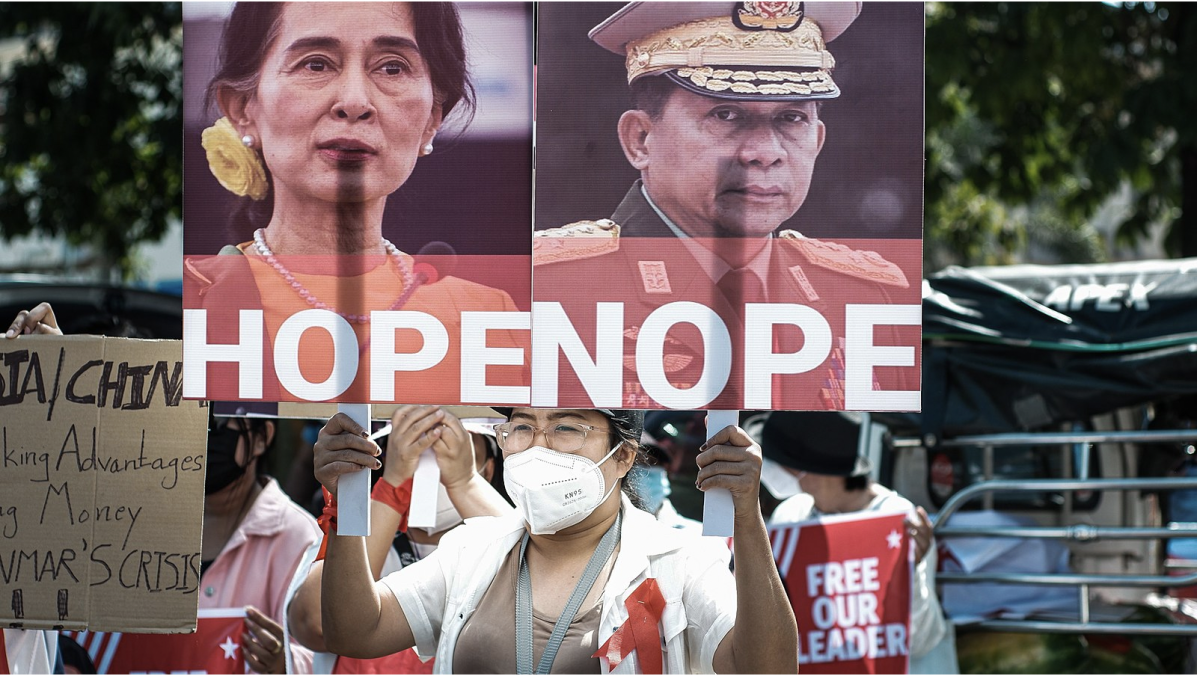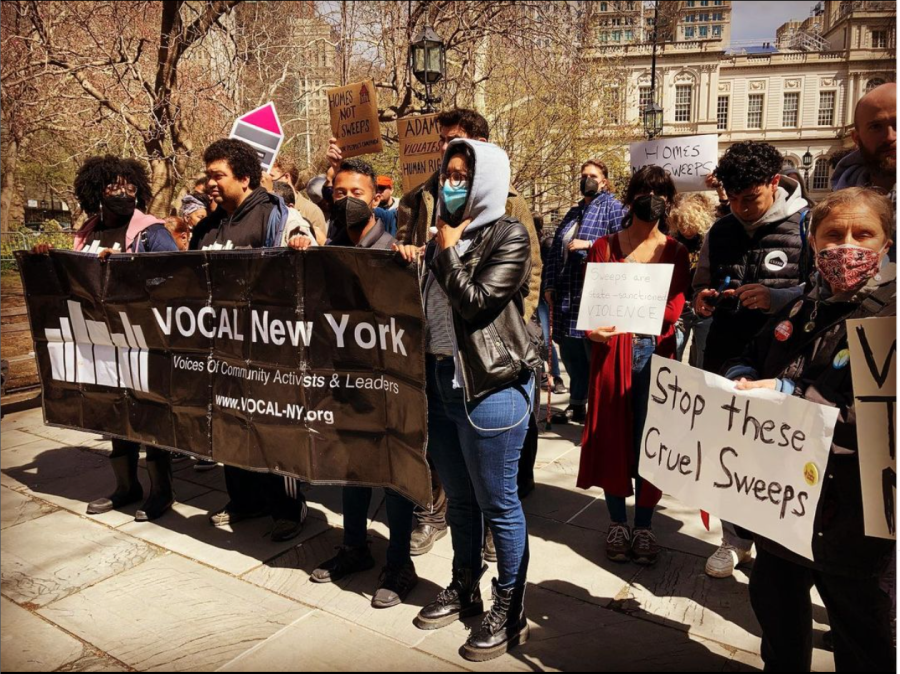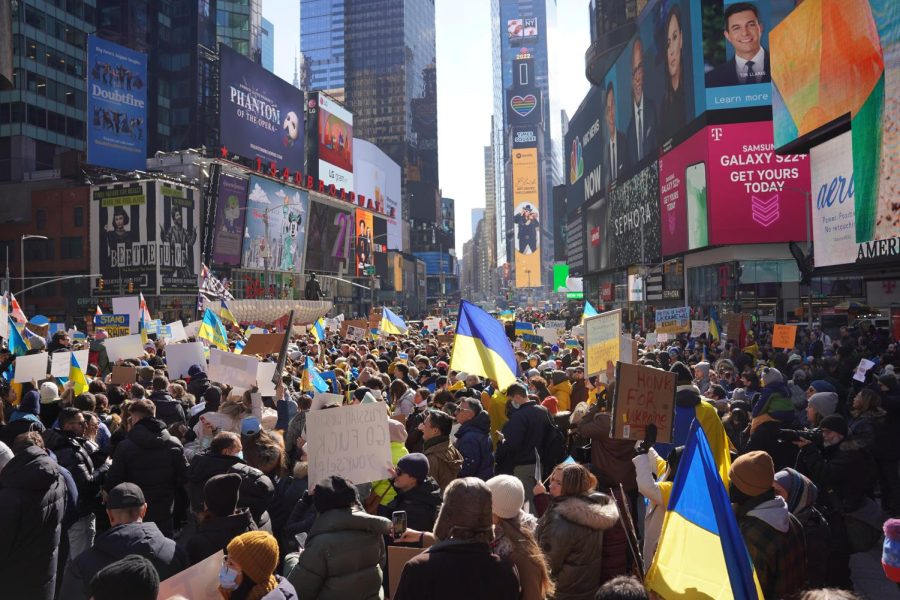It has been three years since Senior General Min Aung Hlaing led a coup d’etat to overthrow the democratically elected members of Myanmar’s ruling party on February 1, 2021. During those past three years, international mainstream media has shifted their focus to other global crises, such as Russia’s invasion of Ukraine, the war between Israel and Hamas, and the tensions between China and Taiwan. Despite society’s attention being redirected away from the coup, the resulting socio-economic setbacks suffered as a nation, the brutal military takeover, and the scarring effects on the Burmese are still ongoing and will continue to affect the current and future generations for more years to come. While humanitarian aid is much in need, the complex geo-political circumstances have made it difficult for international help to reach the people’s pain and suffering.
After the election of November 2020 ended with the National League for Democracy Candidate Daw Aung San Suu Kyi securing an overwhelming victory (the National League for Democracy had claimed 83% of the available seats), Myanmar’s military, the Tatmadaw, refused to accept the outcome by alleging electoral fraud. Following the accusation, with the State Administration Council ruling as the new executive body, Daw Aung San Suu Kyi, President Win Myint, 400 members of parliament, and other top government officials were detained, and the military took control of key institutions and implemented drastic measures such as the suspension of flights, television broadcasts, and internet access. As the stock market and banks closed, widespread protests were triggered as civil servants and citizens demanded the restoration of democracy and the release of detained officials and celebrities.
While the protests initially started as peaceful movements and condemnations, the military soon turned to violence, firing at unarmed protesters to suppress widespread opposition, the first victim being a 16-year-old boy. On April 22nd, 2022, to combat the protests rampant all over the country, the military announced that they would form public militias made up of former military, police, soldiers, and pro-military civilians which would target members and former members of the National League for Democracy. Since then pro-junta groups have claimed responsibility for the torture and killing of several NLD members from all over the country. According to the Assistance Association for Political Prisoners, a human rights organization dedicated to justice in Myanmar, more than 4,000 people have so far been killed by Myanmar’s military junta since the coup, and upwards of 24,000 have been arrested, charged, or sentenced for speaking against the military. According to the United Nations’ UN News, the military had extended its State of Emergency intensifying its use of force to include more aerial bombing, the burning of civilian homes, beheadings, mutilation of rebel fighters’ bodies, and more violence in ethnic areas of Myanmar.
Since the military coup almost three years ago, needs have risen rapidly now with 17.6 million Burmese people in need of humanitarian aid. According to the UN News, 1.6 million people have been displaced from their homes, and 55,000 civilian buildings have been destroyed. Over 150 children have been killed, with victim ages ranging from six months to 17 years, caused by heavy weapons, aerial attacks, torture, and death after arrest (December 27, 2022). These children were people who had dreams and hopes for the future but were shot point-blank while riding a bike, were at their village when the military dropped a drone bomb, were attending a 6-month-old child’s naming ceremony when a shell exploded on top of the house and were at a nursery when they were killed on the spot due to an artillery attack. The deaths of these children occurred at seemingly mundane events doesn’t seem to have an end as the military exhibits brutal inhumanity regardless of age and provocation. A United Nations Human Rights report from January of 2023 states Myanmar’s economy has collapsed with half of its population living below the poverty line, and as this report was from a year ago, one can only assume how the economy has further deteriorated as the military still holds power.
Myanmar’s situation is difficult to resolve because it is intertwined with not only domestic political instability but also with international relations with neighboring countries. While Myanmar is a member state of the Association of Southeast Asian Nations, ASEAN countries also have divided positions on Myanmar. Despite the centrality principle that ASEAN issues are primarily handled by the organization, Myanmar’s issue cannot be resolved internally due to the diverging opinions between the member states. Due to countries in ASEAN being made up of different government systems, such as dictatorships, it would be contradictory to them if they spoke out against their own government system. What is even worse is though not part of ASEAN, external forces like China support the military government because they want stability in Myanmar no matter who takes power. The Western World, especially the United States, wants democratization in Myanmar but lacks the leverage to exert influence over Myanmar. Asian democracies such as Japan and Korea are prioritizing their economic interests while condemning the Myanmar coup.
Furthermore, the UN Security Council cannot pay enough attention to Myanmar due to other pressing issues, such as the Russian-Ukrainian war and the Israel-Palestine war, which causes any international action or humanitarian aid for the Burmese to slide further down the list. Nevertheless, even if international government organizations cannot address the conflict in the near future, non-profit, non-governmental, and religious organizations must continue to provide humanitarian aid for the future generation of the Burmese to be able to survive and strengthen so that they may one day be a part of the force of society to breed freedom and democracy.





















